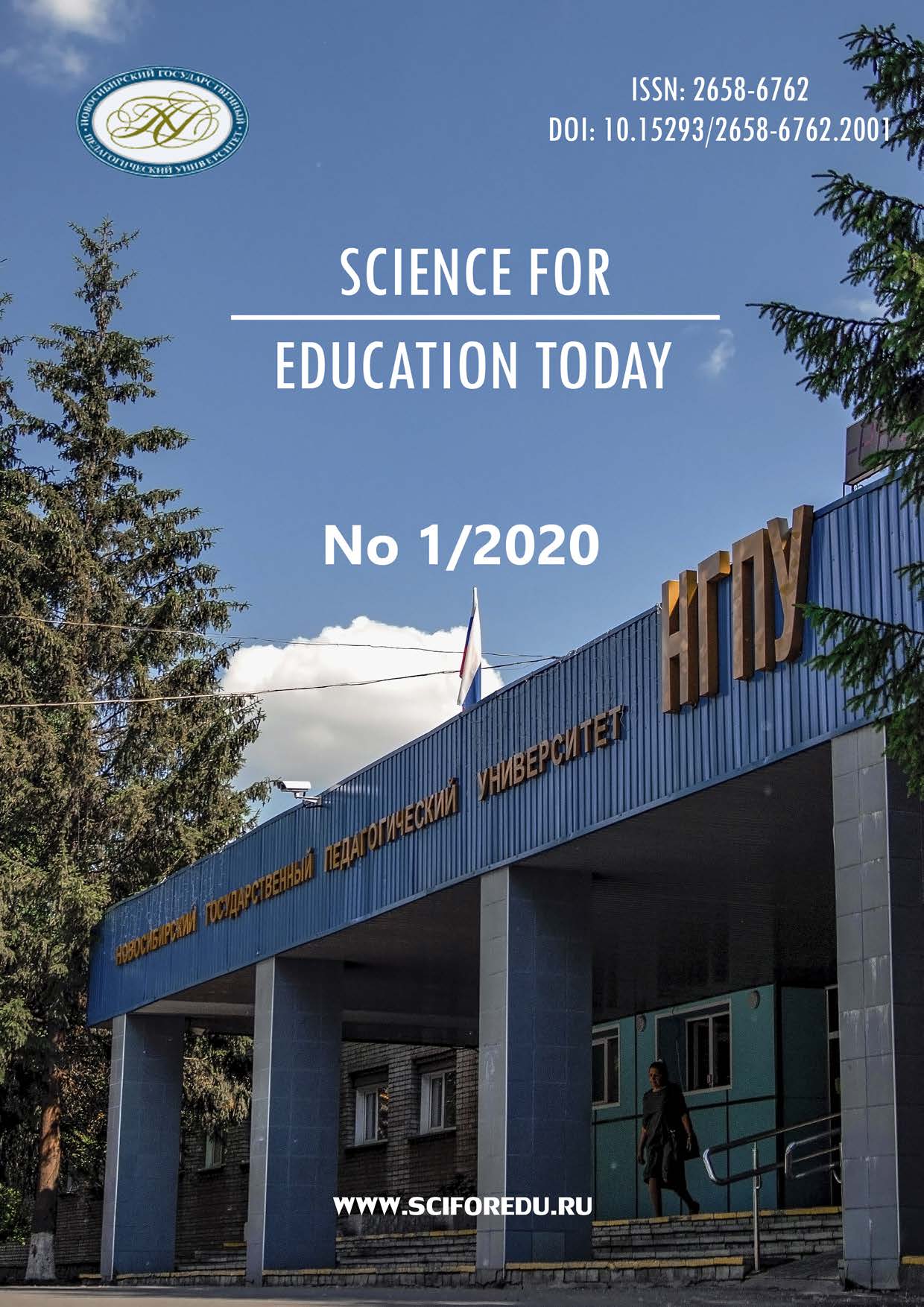Устойчивая мотивация к осуществлению педагогической деятельности как компонент профессиональной гибкости будущих педагогов
Sustainable motivation for teaching as a component of teacher education students’ professional flexibility
Author(s): Aleksey Viktorovich SavchenkovSubject(s): School education, Higher Education , Educational Psychology, Sociology of Education
Published by: Новосибирский государственный педагогический университет
Keywords: Prospective teacher (teacher education student); Professional stability; Professional flexibility; Motivation for teaching;
Summary/Abstract: The article addresses the issue of developing teacher education students’ professional flexibility as a component of their professional competence. The aim of the study is to identify the levels of sustainable motivation for teaching as a component of prospective teachers’ professional flexibility. Materials and Methods. The authors adopt a systemic activity-based approach established by V. P. Bespalko and D. B. Elkonin as well as a structural approach to personality studies. The research methods include questionnaires, reviewing and analysis of scholarly literature. The empirical study of students' motivation for teaching has been conducted for 4 years. The study involved 213 1st-year students doing the undergraduate degree in the field of vocational education and majoring in Computer Science and Computer Engineering, Transport, Decorative and Applied Arts and Design, and Economics and Management at Vocational Pedagogical Institute of South Ural State Humanitarian and Pedagogical University in Chelyabinsk (Russia). The participants completed a questionnaire designed by the authors. Results. The article clarifies the notions of professional stability and professional flexibility, explains their relationship and interdependence, and highlights their significance for teaching. The theoretical analysis of developing professional flexibility has enabled the authors to conclude that sustainable motivation for teaching is a key component of professional flexibility. According to the obtained data, it was found that more than a third of teacher education students had chosen the university and the field of study taking into account rather low entry requirements they could complete having low scores at National Examinations (Unified State Examinations). This trend might have a negative impact on the process of developing their sustainable motivation for teaching. The obtained empirical results indicated that the teacher education students’ had insufficient level of sustainable motivation for teaching. Therefore, the authors justify the need for interventions aimed at enhancing teacher education students’ sustainable motivation for teaching. Conclusions. The authors summarize the characteristic features of sustainable motivation for teaching as a component of prospective teachers’ professional flexibility and emphasize the need for interventions aimed at its development.
Journal: Science for Education Today
- Issue Year: 10/2020
- Issue No: 1
- Page Range: 43-61
- Page Count: 19
- Language: Russian

